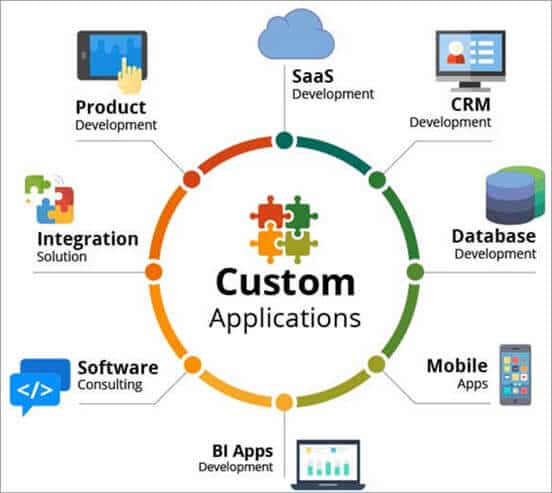

Software companies are increasingly turning to collaboration to drive progress within many different industries.
By working together, these organizations are able to develop innovative solutions to challenges and create industry advancements that weren't possible before.
This article explores the power of collaboration, the opportunities and challenges it presents, and the impact it has had on the industry.
The advantages of collaboration between software companies are numerous and far-reaching. It can allow for a more efficient use of resources, as teams can share their knowledge and expertise to create better products and services.
Additionally, collaboration can lead to improved customer satisfaction, as teams can work together to ensure that products and services are delivered on time and with the highest quality. Further, collaboration can help to reduce costs and increase profits, as teams can create innovative solutions that are more cost-effective than traditional methods.
Finally, collaboration can help to foster a sense of community, as teams can build relationships and trust which can lead to further success.
By leveraging the collective knowledge and expertise of software companies, collaborative initiatives are now gaining traction and igniting industry-wide progress. Industry leaders are coming together to create comprehensive solutions that address pressing market issues, such as security, reliability, and scalability.
These efforts are leading to the development of cutting-edge software products that have the potential to revolutionize the way businesses operate. Additionally, software companies are engaging in knowledge sharing and open source projects, which are allowing for faster innovation and increased efficiency.
By combining forces, software companies are now able to tackle challenges much more quickly than before and are creating opportunities for greater prosperity across the industry.

How quickly are software companies driving innovation in the industry? Collaboration between software companies has become increasingly common, leading to advances that would not be possible by working alone. Software companies are leveraging their collective resources to create more efficient solutions to common industry problems.
Companies are now able to access a wider range of data and insights, allowing them to make better decisions faster. By joining forces, they are able to apply their collective knowledge and experience to develop more sophisticated tools and technologies.
The rate of progress is accelerating, as software companies continue to collaborate and share ideas. This is creating a more competitive and dynamic software industry that is able to innovate faster than ever before. This is beneficial to both consumers and businesses, as they are able to access more advanced solutions more quickly.
Our collaboration has enabled us to create advancements that are pushing the entire industry forward. Software companies, in particular, have been instrumental in driving progress in many industries, enabling innovation and improved efficiency across the board.
With the power of collaboration, software companies are able to pool resources and best practices, allowing them to come up with better solutions faster. From the development of new technologies to the optimization of existing products and services, software companies have been at the forefront of many industry advancements.
By leveraging the collective knowledge of their peers, software companies are able to create more powerful solutions that benefit everyone involved. The power of collaboration has been invaluable in creating a more prosperous future for many industries, and software companies are leading the charge.

Building on the collective knowledge of their peers, software companies are increasingly recognizing the importance of working together in order to create powerful solutions. Through collaboration, companies can leverage the individual strengths of each organization to create comprehensive tools and solutions that address complex problems.
By combining the experience and insight of multiple partners, businesses can develop innovative solutions faster and more effectively. Through collaboration, companies can also benefit from cost savings, as shared resources and expenses can help reduce costs. The most successful collaborations also involve mutual trust and respect between all parties.
Open communication and a shared sense of purpose are essential for establishing a productive and successful collaboration. Companies should also define clear goals and objectives from the start. By working together, software companies can drive industry-wide progress and create products and services that make a lasting impact.
Navigating the complexities of collaboration can present both challenges and opportunities for software companies, requiring them to take a thoughtful and strategic approach. A successful collaboration requires a clear understanding of the goals and objectives, as well as a thorough consideration of the possible risks.
Additionally, it is important to consider the compatibility of the technologies involved and the needs of the stakeholders. Companies must also ensure they have the appropriate resources to support the project. Moreover, communication should be ongoing throughout the process to ensure all parties are on the same page.
By working together, companies can leverage their collective strengths and capabilities to create innovative solutions. They can also access new markets and technologies, and build relationships with partners that may lead to further collaborations. Collaboration is a powerful tool that can drive industry-wide progress.

Mobile applications can be vulnerable to security risks such as malware, data breaches, and privacy violations. Malware can be used to steal user data and monitor user activity, leading to a breach of privacy. Data breaches can occur when the application is not properly secured, allowing hackers to access sensitive information stored on the device. Additionally, privacy violations can occur if the application collects user data without obtaining the user's consent. It is important for developers to be aware of these risks and ensure that their mobile applications are secure.
Software innovations can have numerous financial benefits. Companies can benefit from increased efficiency and productivity, resulting in lower costs and increased profits. Automation can reduce manual labor, allowing businesses to reduce overhead expenses. Additionally, software innovations can help businesses increase customer engagement, resulting in increased revenue and sales. Companies can also access new markets and customer segments, which can lead to higher profits. In summary, software innovations can offer a range of financial benefits to businesses.
Open source software is software that is free to use and modify, and users have access to the source code. It is often developed collaboratively and is available for anyone to use and modify. Proprietary software is software that is owned by a company or an individual, and users do not have access to the source code. This software is usually sold, licensed, or leased, and users are not allowed to modify or share the software.